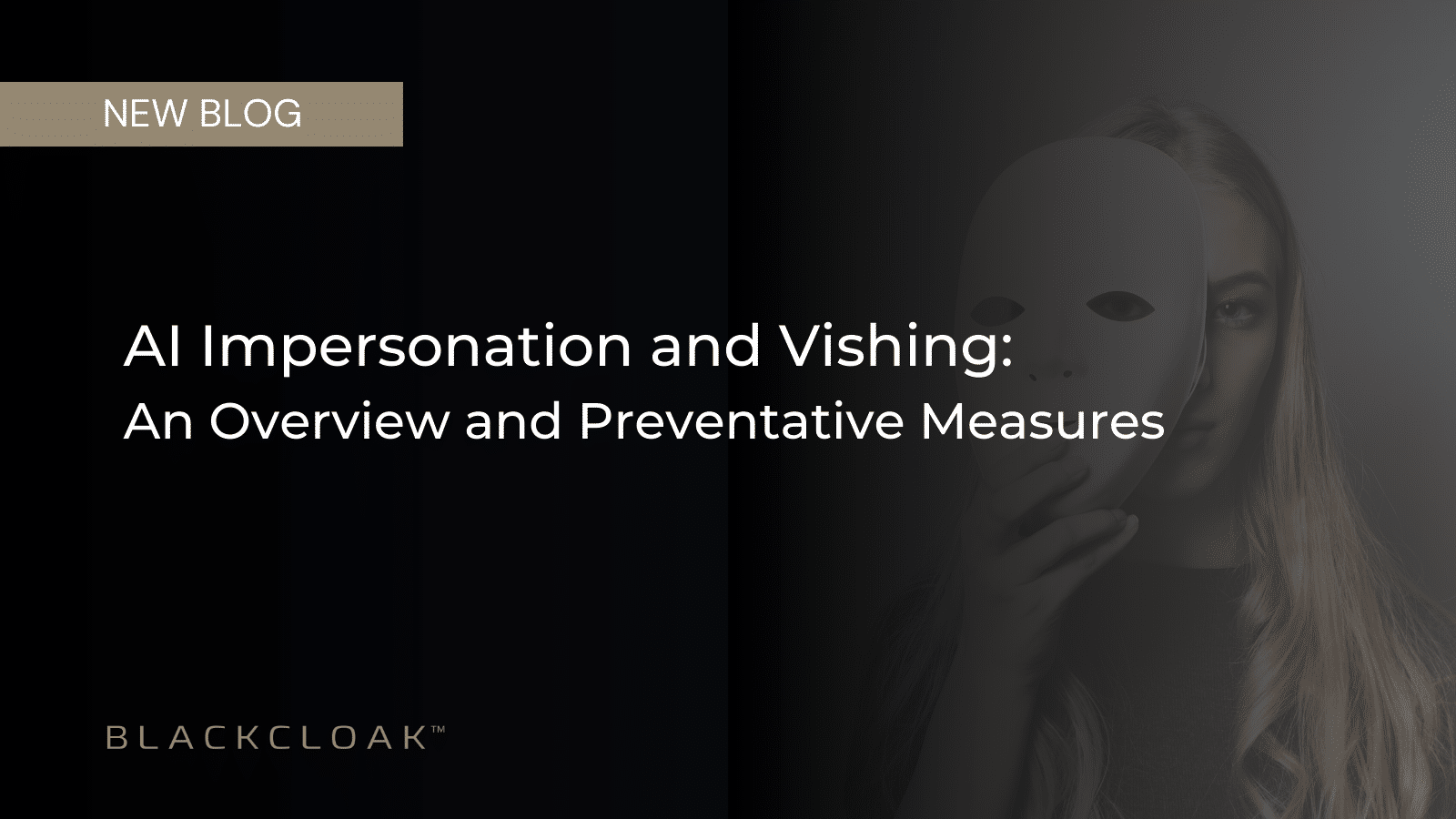AI Impersonation and Vishing: An Overview and Preventative Measures

AI impersonation technology is a new and concerning cyber threat that uses machine learning algorithms to impersonate people online. Hackers can use this technology to create convincing fake personas that they can use to trick their targets into divulging sensitive information. This technique, when combined with vishing, a type of phishing attack that uses voice communication instead of email, can be even more effective. It is important to be aware of this threat and take measures to protect yourself, and your company.
AI has become a part of the cybercriminal’s toolbox
In recent years, AI has become an increasingly popular tool in the world of cybercrime. One of the newest and most concerning uses of AI is impersonation technology. This technique uses machine learning algorithms to create fake personas that are virtually indistinguishable from real people. This can be a powerful tool for cybercriminals, as they can use these fake personas to carry out a range of nefarious activities, including phishing attacks.
What is vishing?
Vishing is a type of phishing attack that uses voice communication instead of email. In a vishing attack, a hacker will call their target, posing as a legitimate person or organization, such as a bank or government agency. The hacker will then try to trick the target into divulging sensitive information, such as passwords, Social Security numbers, or credit card numbers. Vishing attacks can be particularly effective, as the hacker can use a range of social engineering tactics to manipulate their target.
How does AI impersonation technology work?
AI impersonation technology uses machine learning algorithms to create fake personas that are difficult to distinguish from real people. These algorithms can analyze large amounts of data, such as social media profiles, to create convincing fake personas. The hacker can then use these fake personas to carry out a range of cyber attacks, including vishing attacks.
AI can impersonate a person’s voice by using a technique called voice synthesis, which involves analyzing a person’s voice and then generating new speech that sounds just like that person. Essentially, the AI is trained to learn the unique characteristics of someone’s speech patterns, such as their tone, pitch, and accent, and then use that information to create new audio that sounds like the person is actually speaking. This technology has many legitimate uses, such as in voice assistants or automated customer service, but it can also be used for malicious purposes, such as in vishing attacks where an attacker uses a synthesized voice to impersonate someone in order to trick the victim into giving away sensitive information.
What are the risks of AI impersonation technology and vishing?
AI impersonation technology and vishing pose a significant risk to individuals and organizations alike. With AI impersonation technology, hackers can create convincing fake personas that can be used to carry out a range of nefarious activities, including vishing attacks. Vishing attacks can be particularly effective, as they can be used to trick targets into divulging sensitive information. This information can then be used for a range of malicious activities, including identity theft and financial fraud.
Preventative measures
To protect yourself and your company from AI impersonation technology and vishing attacks, there are several steps you can take. First, it is important to be vigilant and skeptical of unsolicited phone calls or emails, especially if they request sensitive information. If in doubt, always verify the authenticity of the communication with the organization in question. Second, it is important to educate yourself and your employees about these types of attacks and how to recognize them. Finally, it is important to invest in robust cybersecurity measures, including firewalls, antivirus software, and intrusion detection systems.
Conclusion
AI impersonation technology and vishing attacks pose a significant threat to individuals and organizations alike. By taking proactive steps to protect yourself and your company, you can reduce the risk of falling victim to these types of attacks. Stay vigilant, educate yourself and your employees, and invest in robust cybersecurity measures to stay safe in the digital age.
Blackcloak is the leader in personal cybersecurity services for executives and HNWIs. Let us know how we can help you.








